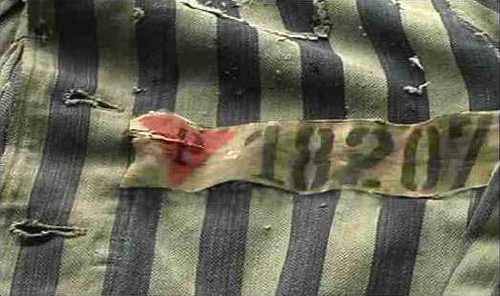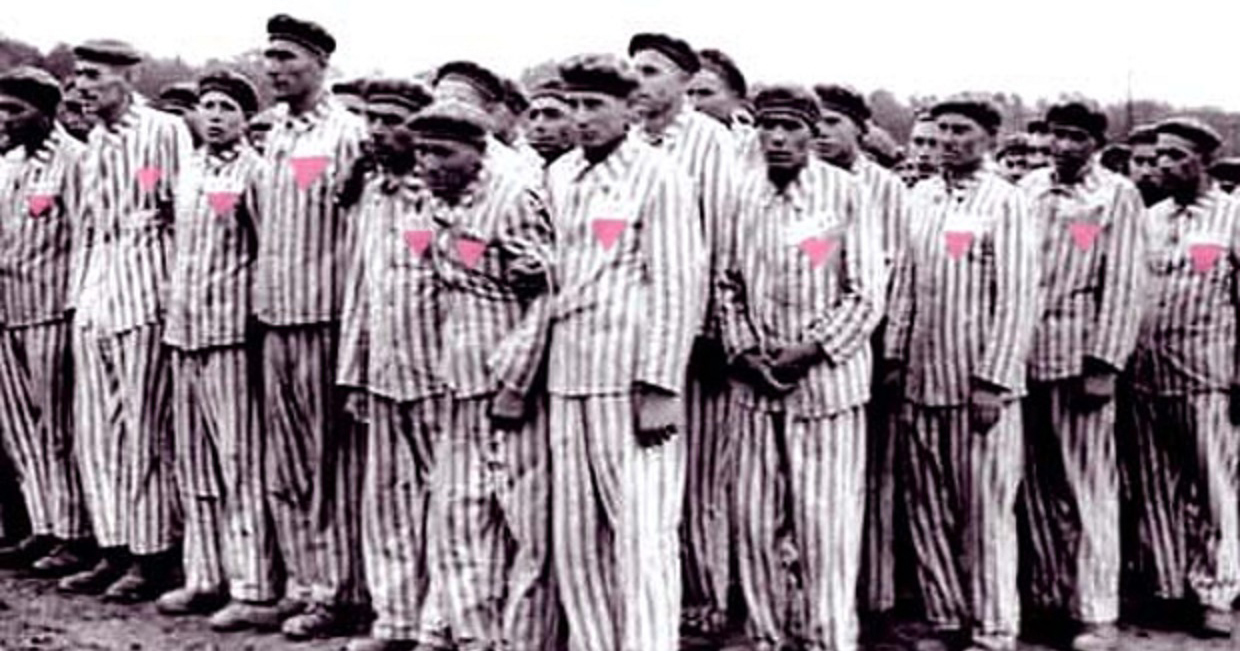The pink triangle is a haunting legacy of the lost generation of homosexuals who were victims of Nazi concentration camps. The badge of shame was used to single queers out, and from first-hand accounts of surviving Holocaust victims, its wearers were equally liable to random violence and punishment from fellow non-gay inmates as they were from the brutality of the guards. A study by Professor Rüdiger Lautmann found that 60% of gay men in concentration camps died. This is in comparison to 41% of political prisoners and 35% of Jehovah’s Witnesses.
It all began in 1933 when the previously gay-tolerant atmosphere of Germany began to change. Gay organisations and even the discussion of homosexuality became banned. Known homosexuals from every stratum of society were rounded up. Lists were made and even at that early stage an untold amount of men were simply ‘disappeared’. Lesbian and gay men’s lives began to fall apart as family and friends denounced them, and the constant terror of arrest hung over them.
There was arguably a large gay element within Nazi organisations. Ernst Röhm, co-founder and commander of the Nazi SA, was openly queer, as were many other lieutenants. Röhm’s power and influence eventually became a threat to Hitler himself. He, along with many other prominent queer Nazis were purged in the Night of the Long Knives in 1934. Röhm’s homosexuality was explicitly given as a reason for his death.
The Gestapo began to pursue the eradication of queers under the special office of ‘Reich Central Office for the Combating of Homosexuality and Abortion’. Castration and “re-education” were adopted as a means to relieve suitably Aryan men from their homosexuality, at least in the early days. The others were sent directly to concentration camps. Likewise, all homosexuals living in Nazi-occupied territories were shipped off to their deaths.

It’s hardly worth reiterating the horrors faced by inmates of concentration camps, save to add that homosexual men were subjected to additional variations of medical experimentation that became synonymous with death camps. Many of these experiments were of a sexual nature and included attempts to ‘cure’ or isolate homosexuality, usually with agonisingly fatal results.
With the end of the war, unlike other survivors of Nazi concentration camps, for many queers, the nightmare was not over. Many were sent directly to other prisons due to their ‘criminal’ nature.
The suffering of homosexuals during the holocaust became largely forgotten. It wasn’t until 2005 that the EU formally acknowledged gay victims of the Holocaust. Now, there are memorials to queer victims of the holocaust in Berlin, Amsterdam, San Francisco, Sydney and most recently in Tel Aviv. But while recognition of the nightmarish suffering of that lost generation continues, lessons are still not being learned. In many countries, LGBTQ+ people live lives under the threat of violence and persecution, and essential hate crime laws still don’t exist in more places than we fear.
Remembering the Holocaust is more important now than ever. It may sound like a cliché to say that those who ignore history are doomed to repeat it, but when we see the old demons rising we must not allow the world to be blindly led down that road again.
In light of Holocaust Memorial Day, queers all over the world should consider that we still bear the weight of the Pink Triangle. It is our inheritance, a warning to us and to those who would try and hurt us, two simple words: Never again.
© 2014 GCN (Gay Community News). All rights reserved.
Support GCN
GCN is a free, vital resource for Ireland’s LGBTQ+ community since 1988.
GCN is a trading name of National LGBT Federation CLG, a registered charity - Charity Number: 20034580.
GCN relies on the generous support of the community and allies to sustain the crucial work that we do. Producing GCN is costly, and, in an industry which has been hugely impacted by rising costs, we need your support to help sustain and grow this vital resource.
Supporting GCN for as little as €1.99 per month will help us continue our work as Ireland’s free, independent LGBTQ+ media.
